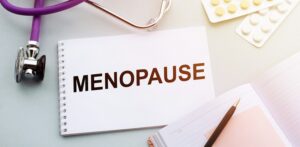
Menopause represents that period when menstruation stops. From a medical point of view, it is defined as the absence of menstruation for a whole year. Menopause occurs around age 51 (on average), but it may occur earlier due to genetic factors, some diseases, or following surgery. When it happens earlier than 40 years, we are talking about premature menopause.
Ask your doctor about the possibility of dealing with early menopause symptoms if you experience the following:
- Mood swings
- Vaginal dryness
- Heat waves (hot flashes)
- Low libido
- Sleep disorders
Before your appointment, make a list of all the symptoms you’re experiencing. Don’t be afraid to discuss your concerns with your doctor. It’s important to be honest and open about your symptoms so that your doctor can help you find the best treatment options and talks around alternative to hysterectomy.
Ask about tests. While there’s no specific test to determine if you’re experiencing early menopause, your doctor may recommend tests to evaluate your ovarian function. These tests can help rule out other causes of your symptoms and determine if you’re close to menopause.
Discuss treatment options. There’s no cure for early menopause, but there are treatments that can help manage your symptoms. Hormone therapy, oral contraceptives, and antidepressant medications are all potential options that your doctor may recommend.
Remember, it’s important to have open and honest communication with your doctor about any symptoms you’re experiencing. By working together, you can develop a plan to manage your symptoms.
